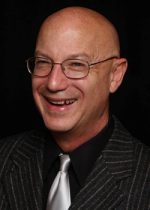Beyond the Basics: Advancing Clinical and Research Practice in HRV Biofeedback
Inna Khazan, PhD, BCB, BCB-HRV
Fredric Shaffer, PhD, BCB
1-day workshop
Date: March 28, 2026
Workshop Title
Beyond the Basics: Advancing Clinical and Research Practice in HRV Biofeedback
Workshop Description
Heart rate variability (HRV) biofeedback is a well-established intervention for a wide range of psychophysiological conditions, including anxiety, depression, trauma, and chronic pain, and is increasingly used to enhance both athletic and cognitive performance. While clinicians receive basic training in HRV biofeedback, many are left without clear guidance on how to advance their skills beyond initial assessments and introductory protocols. Similarly, researchers may lack the practical tools needed to effectively implement HRV biofeedback in academic settings.
This hands-on workshop is designed for clinicians and researchers who are ready to deepen their HRV biofeedback practice. Emphasizing practical applications, the workshop will go beyond the foundational elements of HRV measurement and training to explore more advanced strategies and clinical nuance.
Participants will:
• Engage in live demonstrations and skill-based practice in HRV biofeedback techniques, including introducing challenges/stressors and using HRV in psychotherapy sessions.
• Explore condition-specific applications, including HRV biofeedback for trauma, chronic pain, and optimal performance.
• Observe and practice using paced skeletal muscle contractions as a compliment or a substitute for resonance frequency breathing to enhance HRV biofeedback outcomes.
• Discuss less frequently used, yet important, HRV measurements (such as non-linear measures) and their relevance to clinical work and research.
This workshop is ideal for those looking to strengthen their applied skills, build confidence in complex clinical scenarios, and refine their use of HRV biofeedback in both therapeutic and academic environments.
Learning Objectives
- 1) Engage in live demonstrations and skill-based practice in HRV biofeedback techniques, including introducing challenges/stressors and using HRV in psychotherapy sessions.
2) Explore condition-specific applications, including HRV biofeedback for trauma, chronic pain, and optimal performance.
3) Observe and practice using paced skeletal muscle contractions as a compliment or a substitute for resonance frequency breathing to enhance HRV biofeedback outcomes.
4) Discuss less frequently used, yet important, HRV measurements (such as non-linear measures) and their relevance to clinical work and research.
About Inna Khazan
Inna Khazan, Ph.D., BCB is a clinical psychologist, and faculty at Harvard Medical School. She maintains a private practice in Boston, working with clients on optimizing their health and performance. Dr. Khazan is recognized as a pioneer in the area of mindfulness and acceptance based biofeedback, and is the author of Clinical Handbook of Biofeedback: A Step-by-Step Guide to Training and Practice with Mindfulness.
About Frederic Shaffer
Fredric Shaffer, PhD, BCB is a biological psychologist and professor of Psychology and former Department Chair at Truman State University, where he has taught since 1975 and has served as Director of Truman’s Center for Applied Psychophysiology since 1977. In 2008, he received the Walker and Doris Allen Fellowship for Faculty Excellence. In 2013, he received the Truman State University Outstanding Research Mentor of the Year award. Dr. Shaffer is a co-editor of Evidence-Based Practice in Biofeedback and Neurofeedback (3rd ed.). He is a co-editor with Donald Moss of Foundations of Heart Rate Variability Biofeedback: A Book of Readings. He co-authored with Rollin McCraty and Christopher Zerr, the Frontiers in Psychology review article “A healthy heart is not a metronome: An integrative review of the heart’s anatomy and heart rate variability.” Finally, he co-authored with Rollin McCraty, the Global Advances in Health and Medicine review article, “Heart rate variability: New perspectives on physiological mechanisms, assessment of self-regulatory capacity, and health risk.” He is a contributing editor for the journal Applied Psychophysiology and Biofeedback. His current research focuses on techniques to increase heart rate variability biofeedback. Dr. Shaffer is a BCIA Senior Diplomate in Biofeedback. Dr. Shaffer is the Chair of the Biofeedback Certification International Alliance (BCIA) and Treasurer for the Association for Applied Psychophysiology and Biofeedback (AAPB).


